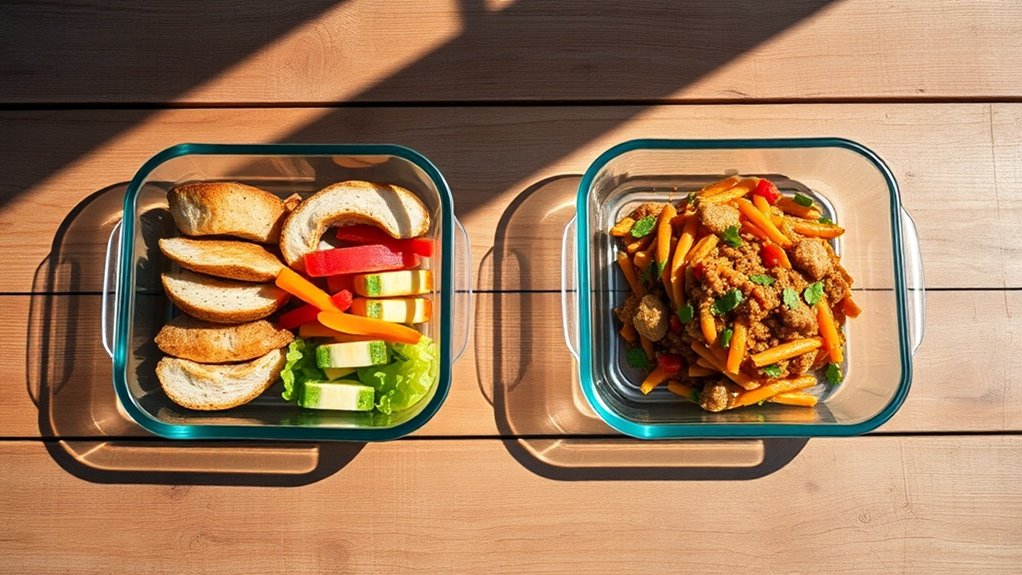Why Most People Quit Dieting (And How You Won’t)
Imagine Sarah, who started her diet with high hopes but quickly felt overwhelmed by strict rules and constant cravings. Like many, she found herself frustrated and alone, ultimately giving up. But what if you could break this cycle? By understanding the common pitfalls that lead to failure and implementing simple, sustainable strategies, you can create a path that not only supports your goals but also fosters a healthier relationship with food.
Key Takeaways
- Set realistic and gradual weight loss goals to avoid disappointment and foster sustainable habits.
- Build a support system with friends, family, or communities to enhance accountability and motivation.
- Identify and address emotional eating triggers to develop healthier coping strategies beyond food.
- Introduce variety in meal plans to prevent boredom and maintain engagement in your diet journey.
- Allow flexibility in dietary choices, embracing moderation to cultivate a positive relationship with food.
Unrealistic Expectations and Goals
Why do so many people abandon their dieting efforts? A major culprit is setting unrealistic expectations and goals.
When you aim for drastic weight loss in a short time, you’re setting yourself up for disappointment. This can lead to feelings of failure and ultimately, quitting.
Instead, focus on gradual, sustainable changes that promote long-term health. Embracing the journey helps build lasting habits that contribute to overall well-being.
Lack of Support and Accountability
Even with realistic goals in place, many people still struggle with dieting because they lack the necessary support and accountability.
Research shows that having a support system significantly boosts your chances of success.
When you share your journey with friends, family, or a community, you’re more likely to stay committed.
Accountability partners can help you track progress and celebrate milestones, making the process more enjoyable.
If you’re feeling isolated, consider joining a group or finding a buddy who shares your goals. Additionally, surrounding oneself with supportive individuals can enhance your commitment and motivation throughout your weight loss journey.
Emotional Eating Triggers
Have you ever noticed how certain emotions can drive you to the fridge? Stress, sadness, or boredom can trigger cravings for comfort foods.
Research shows that emotional eating often stems from a desire to soothe negative feelings rather than hunger.
When you feel overwhelmed or anxious, reaching for snacks can provide a temporary escape. It’s essential to recognize these triggers and develop healthier coping strategies—like journaling, talking to a friend, or practicing mindfulness. Additionally, understanding the role of emotional eating in weight management can help you make better dietary choices.
Monotonous Meal Plans
Monotonous meal plans can quickly lead to boredom, making it hard to stay committed to your diet. When you’re eating the same foods day in and day out, it’s easy to lose motivation and feel deprived. Incorporating variety not only keeps your meals exciting but also ensures you get a balanced range of nutrients. Additionally, listening to hunger cues promotes mindful eating and can help you enjoy your meals more fully.
Boredom With Repetition
Why do so many people struggle to stick with their diet plans?
Boredom with repetition plays a huge role.
Eating the same meals day after day can feel tedious, making it hard to stay motivated.
Research shows that when food becomes monotonous, your brain craves excitement, leading you to stray from your plan.
You might even find yourself reaching for unhealthy snacks just to break the cycle.
To combat this, try mixing things up with new recipes or cooking methods.
Lack of Variety
How can a lack of variety in your meal plan derail your dieting efforts?
When you eat the same foods repeatedly, you’re likely to experience boredom, which can lead to cravings for more exciting options.
Research shows that monotonous diets can trigger emotional eating and cause you to abandon your goals.
Plus, diverse meals provide essential nutrients that support your overall health.
Incorporating different flavors, textures, and ingredients keeps your meals interesting and satisfying.
Experiment with new recipes and cuisines to stay engaged in your diet journey.
Overwhelming Restrictions
Many dieters find themselves overwhelmed by the strict rules and limitations imposed by popular diet plans. These rigid restrictions can create a sense of deprivation, leading to frustration and eventual burnout.
Instead of fostering a healthy lifestyle, they often encourage a negative relationship with food.
It’s essential to remember that flexibility is key to long-term success. By allowing yourself occasional treats and focusing on balanced meals, you can maintain motivation and prevent feelings of guilt. A balanced approach promotes overall health and helps in establishing a positive relationship with food.
Embracing moderation rather than strict limitations helps you create a sustainable approach to eating, promoting both physical and emotional well-being in your weight loss journey.
Insufficient Education on Nutrition
Many people struggle with dieting because they don’t fully understand the role of macronutrients, which can lead to confusion about what to eat.
Ignoring portion control and failing to plan meals further complicates your journey toward healthier eating.
Without proper education on these key aspects, you might feel lost and discouraged, making it harder to stick to your goals. Mindful eating can significantly improve your relationship with food and support your dieting efforts by enhancing body awareness.
Misunderstanding Macronutrients’ Role
Why do so many people struggle with dieting? A big reason is misunderstanding macronutrients—proteins, fats, and carbohydrates. Each plays a unique role in your body, and lacking knowledge can lead to poor choices.
| Macronutrient | Role in the Body | Common Sources |
|---|---|---|
| Proteins | Builds and repairs tissue | Meat, legumes, nuts |
| Fats | Energy and hormone production | Avocados, oils |
| Carbohydrates | Primary energy source | Fruits, grains |
Ignoring Portion Control Importance
How often do you find yourself mindlessly finishing a plate of food, even when you’re not hungry?
Ignoring portion control can derail your dieting efforts.
Many people underestimate the importance of serving sizes and end up consuming more calories than intended.
Here are some tips to help you manage portions effectively:
- Use smaller plates to create the illusion of a fuller plate.
- Measure servings for accuracy until you develop a good eye.
- Listen to your body; eat slowly and stop when you’re satisfied.
- Avoid distractions during meals to focus on your food intake.
Understanding portion control is crucial for lasting change.
Lack of Meal Planning
Relying solely on portion control isn’t enough if you lack a solid meal planning strategy.
Without a clear plan, you might find yourself reaching for unhealthy options when hunger strikes.
Research shows that meal planning can lead to better dietary choices and weight loss success.
By dedicating time to prepare balanced meals, you’re not just controlling portion sizes; you’re also ensuring you consume the right nutrients.
Start by researching easy, healthy recipes and creating a weekly menu.
This way, you’ll feel empowered, avoid impulsive eating, and stay committed to your goals.





